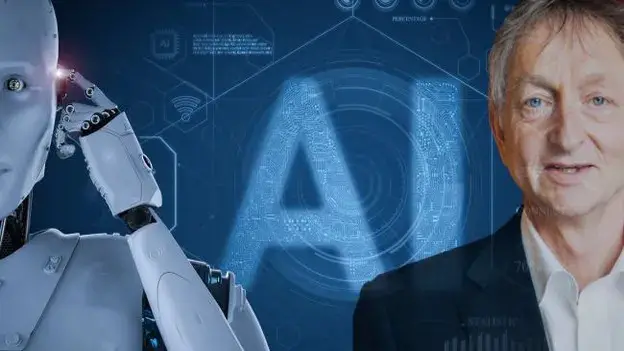Dr. Jeffrey Hinton, a pioneer in the field of artificial intelligence (AI) and deep learning, recently resigned from Google, citing concerns about the dangers of AI. Dr. Hinton’s research on neural networks has laid the groundwork for current AI systems, such as ChatGPT. However, in a recent interview with the New York Times, Dr. Hinton expressed regret over his work and warned that AI technology could flood the internet with misinformation. In this blog post, we will explore Dr. Hinton’s concerns and examine the risks associated with AI.
Dr. Hinton’s Warning
In his interview with the New York Times, Dr. Hinton expressed concern that AI technology could be used to spread misinformation. He stated that AI chatbots can learn so much because they have many copies of the same set of weights or models of the world, and all these copies can learn separately but share their knowledge instantly. This makes it possible for chatbots to know more than any one person. Dr. Hinton warned that the rate of progress in AI is alarming, and systems like GPT-4 already eclipse a person in the amount of general knowledge they possess. He emphasized that while AI is not more intelligent than humans as of yet, it soon may be.
The Risks of AI
Dr. Hinton’s concerns about the dangers of AI are not unfounded. The potential risks associated with AI include the threat to the workforce, the spread of misinformation, and the possibility of unintended consequences. For example, chatbots can absorb large amounts of information and generate outputs such as essays, images, or videos. While this may seem harmless, the concern is that as these systems become more complex, they can be weaponized to carry out a range of tasks that can have unintended and dangerous consequences. If placed in the hands of bad actors, these systems could be used to manipulate people or spread false information.
The lack of transparency in how these chatbots work is also a concern. We do not fully understand how they operate, and there is no real account for how they will go about achieving their objectives, especially if those objectives are rooted in malicious intent. Dr. Hinton has warned that these systems behave differently from humans, and there is no way of knowing how they will achieve their objectives.
Call for a Moratorium
These concerns have prompted more than a thousand tech leaders to call for a six-month moratorium on the development of new AI systems. They argue that AI poses a profound risk to society and humanity. However, some experts believe that it may already be too late to halt the development of AI. The rate of progress in the field is such that we may not be able to keep up with the risks associated with AI.
Conclusion
In conclusion, Dr. Hinton’s warning about the dangers of AI should be taken seriously. The potential risks associated with AI are numerous and significant, and we must take steps to mitigate them. It is crucial to recognize that digital intelligence is different from human intelligence and that we must be aware of the unintended consequences that may arise when we use AI systems. We need to summon our human intelligence to tackle the risks associated with AI and ensure that we develop AI systems that are responsible and safe to use. Ultimately, the development of AI can have many benefits, but we must ensure that we do not overlook the potential risks associated with this technology.


